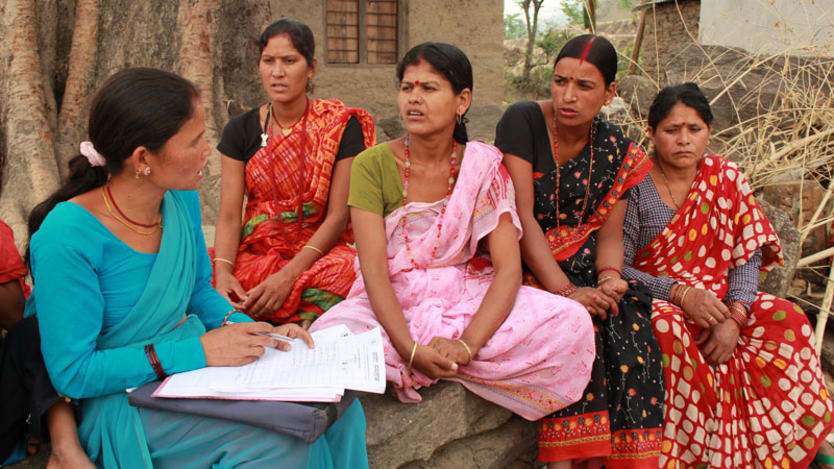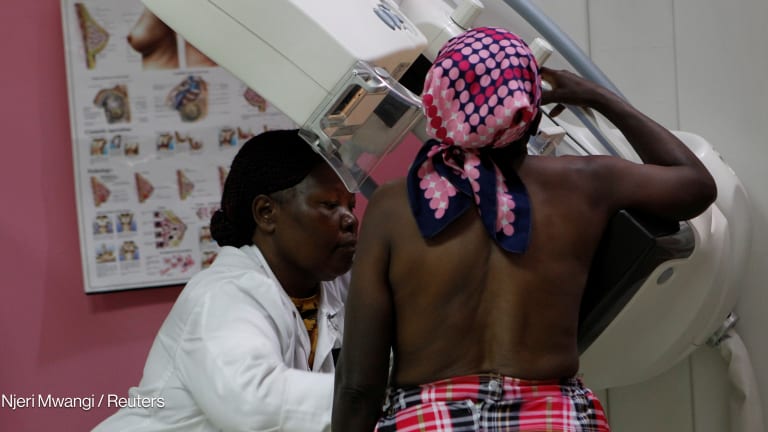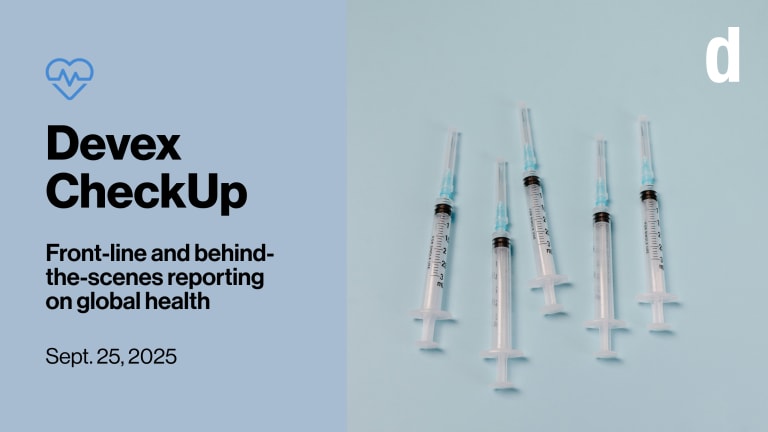
For perhaps the first time in history, there is widespread agreement among governments, private funders, and bilateral and multilateral organizations about the importance of having and using high-quality public health data to address, improve and plan for both short- and long-term health issues. From detecting epidemics to addressing emerging chronic illnesses and sourcing medical resources, data is critical for effective public health planning.
Yet access to uniform, comprehensive health data — and the ability to centralize, analyze and use it is sorely lacking. In low-and middle-income countries specifically, the most basic health data, such as birth and death records and rapid information about risk behaviors for noncommunicable diseases, do not exist.
Each year the World Health Organization estimates that 65 percent of all deaths worldwide — 35 million — go unrecorded. Millions more deaths lack a documented cause. These resources are vitally needed in order to understand existing and developing population and health trends.
There are many opportunities for the development community to focus on various elements of data. From ensuring that data is collected efficiently and pragmatically through technology to improving how public health data is shared, there are a number of avenues for development professionals to bolster resources.
Government support needed
So, how can the development community best contribute to ensure that this unprecedented opportunity creates the largest, most impactful, sustainable change possible?
The answer is both easy and difficult, as well as simple and complex: prioritize working with developing country governments to make high-quality, relatively inexpensive and systematized change in data systems. Too often, the development community has worked outside of government to create the best possible estimates based on existing data. And these estimates have served an incredibly valuable purpose, often allowing for preliminary evidence to inform advocacy and public health solutions where none might have existed previously. But high-quality estimates will never create government data systems. Without government-owned data systems, the proportion of deaths and births registered will never change.
Partnering with governments is the only route to gathering better public health data. Governments must implement lifesaving regulations, services and funding, so partnerships with governments are the best route to ensure that data is central to their decision-making process. And governments know the largest priorities that are needed to create stronger health data systems in their own countries, and then using that data for public health decision-making.
Now there is a confluence of government interest in having better data, and using it more fully. For example, there are calls from United Nations agencies about using data to track global and country-level progress; interest from bilaterals in providing funding for data improvements; and private funders who are engaged and willing to help.
The Bloomberg approach
In an effort to improve services and decision-making, Bloomberg Philanthropies’ founder Mike Bloomberg focused on data, especially to make public health improvements during his 12 years as mayor of New York City. At the foundation, we apply the same philosophy on data use to global public health. The Data for Health initiative, led by the public health team at Bloomberg Philanthropies, for example, aims to support interested governments in creating data systems changes that will be lasting, affordable and impactful.
When we launched Data for Health last year, we knew we wanted to work with governments that were as interested in improving public health data as we were. We had heard from technical experts about potential changes that could be made to government data systems that would create efficient and sustainable changes in health data.
Even with a relatively short-term, four year investment, we knew we wanted to take a methodical and measured approach, before we did anything else, to find governments that were interested in partnering with us. We are working to achieve our ambitious goal of helping more than 1 billion people in countries across Africa, Asia and Latin America live healthier, longer lives, over the next four years.
To achieve this, Bloomberg Philanthropies and representatives with technical expertise on data improvements traveled from country to country for the better part of eight months to sit with government ministries in some of the world’s biggest developing countries to talk about their willingness to work together on this issue. In the process, what we discovered was an esteemed group of promising, knowledgeable and committed government leaders with whom we have since established 18 partnerships to improve public health data by 2019.
Building these partnerships has illustrated several important lessons. First, government leaders are not only aware of the data gaps that exist, but highly committed to closing those gaps. Second, technical leaders within governments have considerable expertise and are themselves open to collaboration with global experts who can help to efficiently link to resources that will improve data. Third, although some of the modifications to data systems can be expensive, there are many cost-effective, impactful strategies that can be put in place. Our partnerships with these governments form the foundation of the Data for Health initiative.
Contributing to global momentum
Along the way, we have also been guided by members of the data improvement community that have been responsible for helping to create this unique moment of interest in data. For example, global collaborations such as the Health Data Collaborative have been calling for attention to this issue; governments in developed countries such as Canada and Australia are beginning to take on financial commitments to improving data through the World Bank Global Financing Facility and the Bloomberg Philanthropies Data for Health initiative. Additionally, U.N. agencies such as World Health Organization, the U.N. Economic Commission for Africa, and the U.N. Economic and Social Commission for Asia and the Pacific are focused on data.
“Improving health data” can mean many things and trying to do all of them would be the fastest route to accomplishing nothing. Our commitment focuses on several core areas, including increasing the number of births and deaths registered (with a cause of death recorded for each death); exploring new technologies for more rapidly collecting data on noncommunicable disease risk factors; and increasing capacity to analyze and use data for policymaking.
This program intends to ensure that data collection, training in data analysis and the deployment of new systems in participating countries and cities in Latin America, Asia and Africa will turn insights from data into public policy, and direct resources to specific targeted issues affecting public health.
Now that we have created partnerships with countries, work is underway. In several countries, our partnership teams are working to improve death certificates so that they capture analyzable, comparable data.
We are also working to provide technical resources to countries that are looking to collect information on deaths occurring outside health facilities. Our noncommunicable disease survey team is working to develop mechanisms for collecting risk factor data through mobile phone calls, in order to more frequently supplement gold-standard surveys collected through household visits. And we are partnering with countries to ensure that better data is not only collected, but analyzed and used to inform programmatic decisions and policymaking, so that the full significance of data — to change government action — is fully realized.
There is no question that this time presents an unprecedented opportunity to make significant strides in improving public health data in developing countries. What remains unknown is whether the development community will maximize the opportunity by supporting change where it will be most impactful: by creating partnerships with country governments to ensure sustainable change.
With potential to change the trajectory of crises, such as famines or the spread of diseases, the innovative use of data will drive a new era for global development. Throughout this monthlong Data Driven discussion, Devex and partners — the Agence Française de Développement, BroadReach, Chemonics and Johnson & Johnson — will explore how the data revolution is changing our approach to achieving development outcomes and reshaping the future of our industry. Help us drive the conversation forward by tagging #DataDriven and @devex.
Search for articles
Most Read
- 1
- 2
- 3
- 4
- 5








